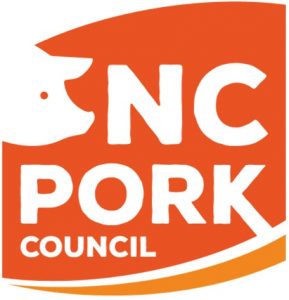For nearly two decades, I was a journalist and was usually among those dispatched to cover incoming hurricanes.
I saw firsthand the devastation that these storms can cause, and I’m grateful for the hard work being done by so many to prepare for Hurricane Florence.
I have seen farmers this week working relentlessly to make sure they have the necessary supplies on hand to care for animals and protect their farms. I’ve seen harvesting of crops well into night, knowing much of the corn not picked now will be lost. And I know that a dry August growing period has led to low lagoon levels on our farms – such that we can handle 25 to 30 inches of rain in the lagoons.
I also know that, despite the headlines of the past day or so, the environmental threat from the hurricane is not from hog farmers. The data tells us that.
We should be much more concerned about the municipal treatment plants, which fail in even routine rain events.
Effects in Matthew and Floyd
On just one day in 2016 during Matthew, the municipal plants spilled more than 100 million gallons of raw human sewage into the state’s waterways.
Over an eight-day span in the storm, municipal plants released more than 150 million gallons of sewage into the waters of the state.
Toilet paper from these plants littered the trees like little pieces of confetti.
Two decades ago, Floyd was even worse — 209 municipal and industrial wastewater treatment sites were impacted.
Problems with eight municipal systems continued more than a month later.
Thousands of septic systems failed. More than 200 caskets were unearthed. More than 3,500 underground storage tanks failed, sending sheets of oil and chemicals into the floodwaters.
Five Superfund sites flooded.
We had farms flooded, too, and there’s a well-known story of one farmer calling officials to ask the state to please come get the waters of the state off his farm.
I saw much of it firsthand. I spent days in Duplin County. It wasn’t pretty, but the problem wasn’t the hog farms.
In Matthew and Floyd, a very small fraction (less than 2%) of the hog farms was affected. Still, the industry has taken significant steps since Floyd to lessen such impacts, including closing farms and lagoons in the most flood-prone areas. That work continues to this day.
Government officials understand all this, by the way, and are concerned about what may happen as the municipal plants and other facilities are impacted.
And yet, there are activist groups already using this coming storm to advance their anti-agriculture agenda, and a willing and receptive media is going along.
We don’t know what will happen next, but we should be proud of the preparations already taken.
Farms that may flood in this storm will not have animals on them – because of our preparation.
Let’s all stay safe
Beginning sometime tomorrow, the rains will start to fall.
We know this storm will cause significant flooding – and some of that water will surround our farms or inundate some of us.
Many of our farmers are volunteer firefighters, and will be out while it is still coming. And while you are working to help your community recover, the activists say they will be devoting their time and resources to attack hog farms instead of helping those in need. Yes, while you are keeping your animals fed, and your farms powered, activists will be flying through the air looking for ammunition to use against our farmers. It is shameful.
A last word about staying safe.
During storms like this, most deaths are the result of inland flooding. So, please be safe and smart. Do not drive through moving water. Turn around. Moving water can – and will – take your life.
Think for a moment as well about where flood waters were in Matthew and Floyd. If you saw water in your house in those storms, expect it from Florence – and then some. Add a foot, to be safe.
We hope the forecasts are off.
As this storm moves in on us, let’s continue to keep our heads down and focus on what’s ahead.
We are grateful for all you have done to prepare ahead of this historic storm, and we are thankful for everything you do to help your neighbors and communities.
— Andy Curliss, CEO

